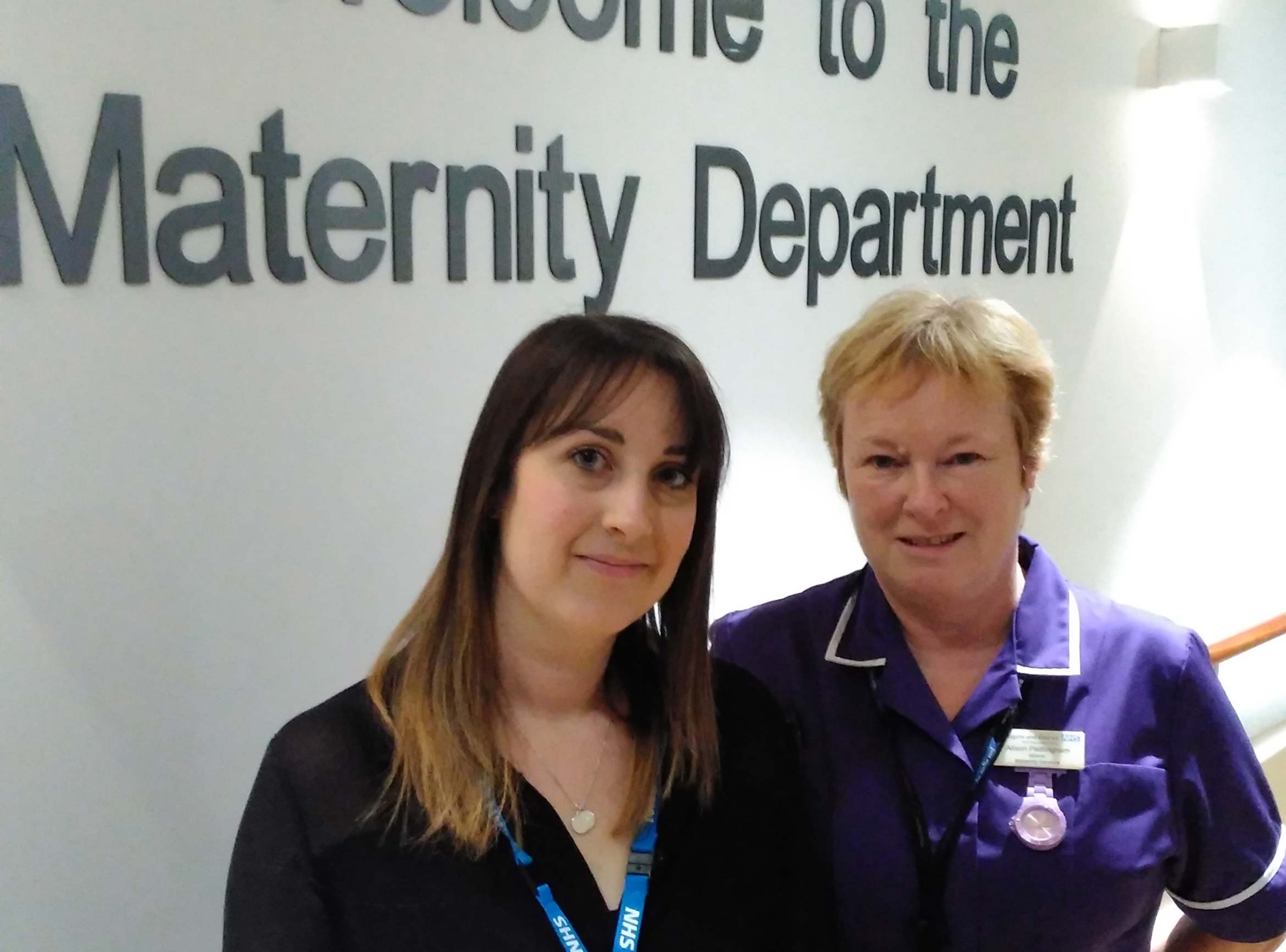An innovative NHS partnership providing mental health support to mums-to-be and new mums in Harrogate has been shortlisted for a national Royal College of Midwives award.
The partnership between Maternity Services at Harrogate District Hospital and Tees, Esk and Wear Valleys NHS Foundation Trust’s (TEWV) Improving Access to Psychological Therapies (IAPT) Team sees women in need of mental health support referred directly to a trained specialist.
The project has been shortlisted in the Slimming World Award for Partnership Working category at the RCM Annual Midwifery Awards 2016.
The project was introduced in February 2016, with two primary objectives. One was to improve the accessibility of evidence-based psychological therapies for women in the perinatal period with depression and/or anxiety disorders, and the other was to build relationships between midwives and mental health staff in the IAPT service to improve the referral process and increase the number of midwifery referrals to the IAPT team.
Karen Wells, who is a High Intensity Therapist with TEWV, is based in the Antenatal Clinic at the hospital every Wednesday, providing sessions to pregnant women referred by midwifery staff. Mums-to-be and new mums are referred for up to 12 one-hour sessions each.
Karen said:
It’s so pleasing how well we are working together to provide this service for those mums who need it. A 2013 Netmums survey found that one in seven mothers experience depression during pregnancy, a further one in seven experienced post-natal depression and as many as one in three reporting some degree of depression or anxiety in the perinatal period.
We are delighted that we’ve been able to help women to successfully overcome their anxieties and improve their mental health as they approach birth and motherhood.
The award winners will be announced at the RCM Annual Midwifery Awards on 7 March 2017.
Alison Pedlingham, Matron for Maternity Services at Harrogate District Hospital, said:
We are delighted to have been shortlisted for this award which really demonstrates the effect we’re having by working together in this way.
So many mums who have mental health issues feel they’re alone or the only ones suffering from it, but that’s far from the case. Mental health-related challenges are really common with birth. Midwives aren’t counsellors or trained to provide mental health care, so this support from Karen is so important.
Having a High Intensity Therapist in our Antenatal Clinic has improved accessibility to services; access to a midwife at the same time enables other pregnancy or postnatal issues to be addressed in a one-stop setting.
Cathy Warwick, Chief Executive of the Royal College of Midwives, said:
Just to be shortlisted is a great achievement and I congratulate the team at Harrogate on getting this far. This award highlights how health professionals working together in collaboration can improve services and the care women receive. I wish the team the best of luck at the awards ceremony.
Carolyn Pallister, Slimming World Public Health Manager, said:
We welcome any service that improves the lives of mums, mums-to-be and babies. Pregnancy and early motherhood is a time when women can often feel vulnerable and uncertain, and so are open to seeking support to help them give their new arrival the best possible start in life. This service shows that partnership working can be effective at giving women the support they need at this crucial time.








I am extremely doubtful that appropriate care will flow from this admirable effort to meet the needs of those mums needing support in the way described above. This in spite of the talents and care of the local therapists involved. Sadly, the government’s own figures have shown that nationally IAPT is failing due to sketchy staff training, a very young and inexperienced workforce, a limited menu of treatments, abusive rationing of patient time, increasing reliance on online assistance, high depression figures in staff and more recently, political pressure in some areas to disclose confidential information of patients to authorities.
The default treatment in IAPT across Britain is CBT (Cognitive Behavioural therapy) which has unsurprisingly been exposed as the least effective evidence based treatment. IAPT’s staff may go on to become competent therapists one day. For now though they are overworked and mainly trained in a therapy which targets one or two small aspects of a patient’s problems.
Most IAPT models leave the crucial underlying issues of patient largely unaddressed. I regret to say that nationally the current business approach is unsafe, not least of all due to poor funding and high levels of need. IAPT senior management even use CBT techniques to convince their own staff that inadequate treatment is worthy, when so often all that is offer is a psychological sticking plaster and a big warm smile.
IAPT treats vulnerable people as a high street chain store would, squeezing customers into a tiny number of tightly fitting products with little expertise outside their current range. In the last few weeks further constraints on funding have been announced.
We really should take all IAPT press handouts with a pinch of salt. IAPT could be really excellent but instead is drifting further away from ever being an ethical and safe service. I do not blame the staff at all but I do suggest that IAPT senior management and their commissioners across Britain, should be feeling considerable shame.